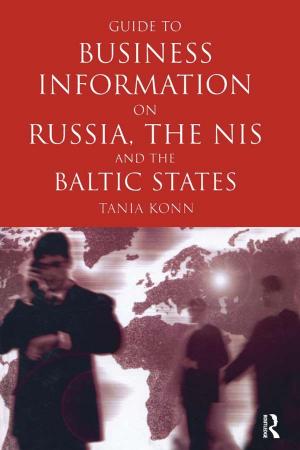The European Union and Military Conflict Management
Defining, evaluating and achieving success
Nonfiction, Social & Cultural Studies, Political Science| Author: | Annemarie Peen Rodt | ISBN: | 9781317908142 |
| Publisher: | Taylor and Francis | Publication: | April 16, 2014 |
| Imprint: | Routledge | Language: | English |
| Author: | Annemarie Peen Rodt |
| ISBN: | 9781317908142 |
| Publisher: | Taylor and Francis |
| Publication: | April 16, 2014 |
| Imprint: | Routledge |
| Language: | English |
This book provides the first comprehensive review of the European Union’s role in military conflict management beyond its borders and makes an important contribution to debates on the EU’s role in global security governance.
The EU has launched five military operations within the framework of its Common Security and Defence Policy with the explicit purpose to help manage violent conflicts beyond its borders. This book develops a definition and a set of criteria for success in military conflict management and applies this new analytical framework in a comparative case study of the five EU military operations undertaken in Macedonia, Bosnia and Herzegovina, the Democratic Republic of Congo, Chad and the Central African Republic. Having evaluated their success the book goes on to explore the conditions under which military conflict management operations conducted by international organizations are successful and explores the implications of its findings for the future theory and practice of military conflict management.
The European Union and Military Conflict Management will be of interest to students and scholars of security studies, conflict studies, European Union politics and foreign policy and global security governance.
This book provides the first comprehensive review of the European Union’s role in military conflict management beyond its borders and makes an important contribution to debates on the EU’s role in global security governance.
The EU has launched five military operations within the framework of its Common Security and Defence Policy with the explicit purpose to help manage violent conflicts beyond its borders. This book develops a definition and a set of criteria for success in military conflict management and applies this new analytical framework in a comparative case study of the five EU military operations undertaken in Macedonia, Bosnia and Herzegovina, the Democratic Republic of Congo, Chad and the Central African Republic. Having evaluated their success the book goes on to explore the conditions under which military conflict management operations conducted by international organizations are successful and explores the implications of its findings for the future theory and practice of military conflict management.
The European Union and Military Conflict Management will be of interest to students and scholars of security studies, conflict studies, European Union politics and foreign policy and global security governance.















